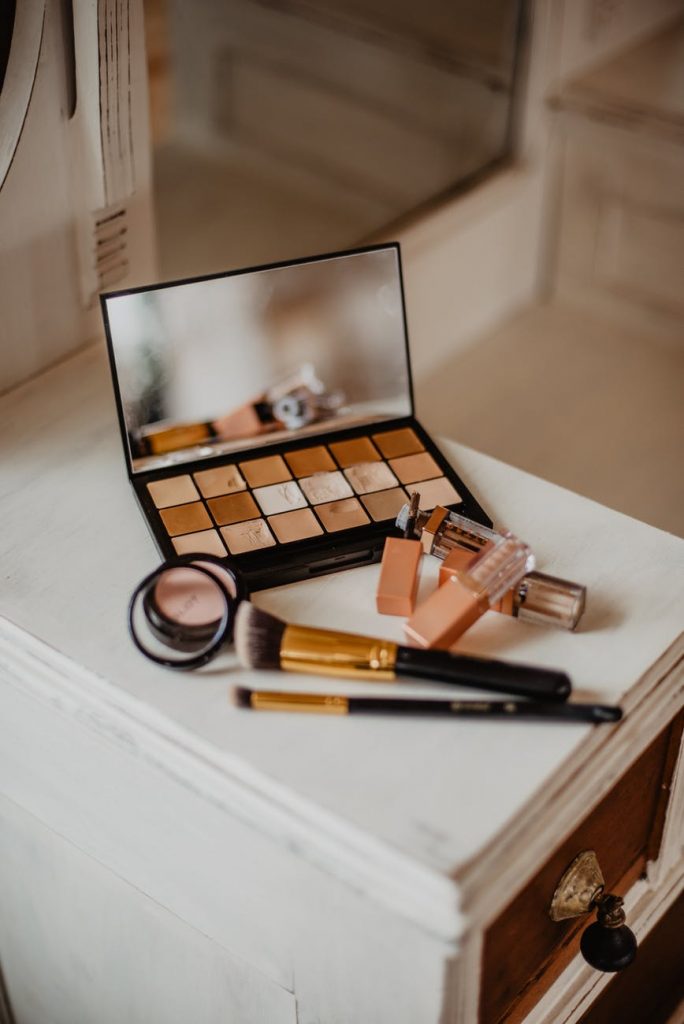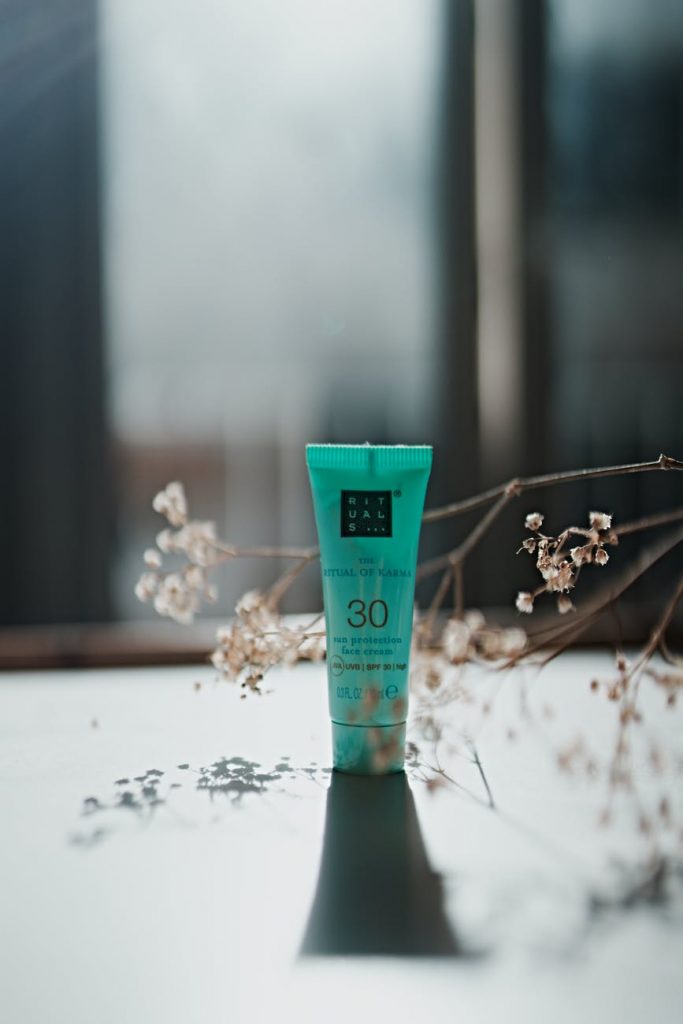Skincare faux pas is easier to make than you think it is. Amidst all the different magazines, websites, beauty specialists, and influencers raving about various products, it is tough luck to find your holy grail items. With all this information thrown at you, understanding and finding out what works for you is a long process.
At the end of this madness, we all end up making a few common mistakes in our skincare routines. These mistakes might not seem to be that major; however, it can stack up to skin damage in the long run.
It is necessary to identify the mistakes you’re making in your current skincare routine to find the perfect one. That way, you can tick off the red flags and create the routine that suits you the best.

So here’s a list of some skincare faux pas that you might be making in your routine. In addition to that, some quick tips on how you can avoid them.
Sounds enticing? Scroll through to learn more!
Not knowing your skin type.
It took me the longest time to realize what my skin type is. And I know for a matter of fact that this is the most common faux pas that everyone has made at some point in their lives. Especially, when you’re a teenager, and just starting out on your skincare routine, it’s normal to not know the best and not understand what your skin type is. Finding your right skin type is step 01 to finding effective skin-care.

There are different formulas effective for different types of skin, and one does not work for another. So it is super- duper important for you to read through the description of the products you’re using and understand if it will suit you or not. However, finding out your skin type is not as hard as it sounds. As they say, when there’s a will there’s a way. Here are a few tips on how you can identify your skin type:
- Easiest of them all, consult a dermatologist. This way you can get accurate information regarding your skin and guidelines about what you should use or not.
- Experiment. Experiment with new products, but read through the ingredients and the formula of the products carefully.
- Research, watch skincare videos. A famous Indian dermatologist, Dr. Narmada Matang has said, there are two ways you can understand what your skin type is: Feeling, and seeing. Once you use a new product- say- a face cleanser, you can leave your skin for an hour to check how your skin feels after the cleansing. And depending on the feels, you can categorize your skin into normal skin type, oily, combination skin, and so on. Here’s a video where she discusses different skin types and how to identify them.
Sleeping with your makeup on
Okay so here’s the drill, I AM NOT GONNA SUGARCOAT THIS, but sleeping with your makeup on….is bad. I won’t even use any other adjective to explain this. It is just. bad.
Firstly, leaving any kind of makeup on for too long is harmful to your skin. When you fall asleep with the makeup on, the foundation or whatever product it is- gets time to sit on your skin and eventually clogs your pores. Even though cosmetics brands nowadays are very conscious and try to avoid toxins in their products as much as possible. They still use chemicals. And a lot of these chemicals are not good for your skin. It can cause acne and various other skin infections.

It is not just the face products, leaving your eye makeup for too long and falling asleep with it- is harmful as well. Our eye tissues are thinner than that of the rest of the face. So, leaving your eye makeup on for a longer period can easily cause various eye infections and styes.
This is a faux pas that you have to avoid, no matter how lay you feel or what the circumstances are. When you have a layer of makeup on your face for a longer time, your skin ceases to get the oxygen that it needs and it gets the scope to house bacterias.
You do not use SPF regularly
One of the most common faux pas that I’ve seen people make, also one that I, myself, was guilty of making is: NOT WEARING SPF regularly.
No, sunscreens are not just supposed to save you from sunburns during summer. Rather, SPF is an all-year-round preventive measure that should be taken by everyone out there.

A lot of people have the idea that sunscreens are only apt for sunny days. But did you know? You can be exposed to UV rays in more ways than you can even imagine. First of all, clouds DON’T completely block the passage of UV rays. Suppose your workstation at the office is right next to the window. Guess what? Sun rays can also pass through windows. Sounds frustrating? But it is what it is. UV rays are sneakier than we thought. The point is: Ultraviolet Radiation is always there, even if you are at East Antarctic Plateau.
I can not even begin to start rambling about how using SPF regularly has changed my life. Too much exposure to UV rays can cause photo-aging. Wearing SPF on a regular basis can help prevent early aging of the skin. Besides, Sunscreen is also a perfect preventive measure to save your screen from other damages, for instance, skin discoloration and uneven skin tone.
Over-exfoliating your face
Over-exfoliating your face is not a solution to getting flawless skin. It does more harm than good. Over cleansing can not only create inflammation on your skin, but the overuse of different chemicals infused in the cleansers can damage your skin in the long run.
Some of the symptoms that you might be over-cleansing you face are: Skin redness, dry skin patches, your skin feels too dry all the time no matter how much you moisturize, acne.

Don’t get me wrong, cleansing your skin properly is crucial, but overdoing it has its demerits. Here are some tips you can follow to avoid over-cleansing:
- Make a skincare routine and strictly follow it. Wash your skin once or twice a day.
- Do not overuse scrubs. Scrub your face once a week. Maybe, Twice at max.
- Use wipes. Whenever you feel like exfoliating your face, use wipes! Wipes infused with essential oils are great for the skin. It also helps us to keep our skin clean.
- Moisturize, moisturize, moisturize!
Applying lemon on your face
The last skincare faux pas is one that comes from a personal book of regrets. Lemon is a great ingredient; it is healthy, boosts your immune system like no other. However, you might want to reconsider applying lemon to your skin.

The citric acid present in lemons can leave a long-term impact on your skin. It can trigger hyperpigmentation, phytophotodermatitis, and more skin conditions. So it is best to use lemons or any product that is highly acidic under the supervision of a specialist.
Nevertheless, making a routine on your own, too, has its drawbacks. Using random products you found online can be harmful to your skin, so you need to be very calculative of your actions. Make sure to study through the ingredients, formula, and description of the products you are using. You have to carefully look for allergens or any kind of irritation-causing ingredients, or it can create damages that you won’t be able to reverse.
On an end note, finding the right products and techniques when it comes to skin is a hard nut to crack. Also, because our skin type and routine keep changing with time, age, and season. However, you are allowed to make a few skincare faux pas while you are still figuring things out. So, cut yourselves some slack.


























Leave a Reply